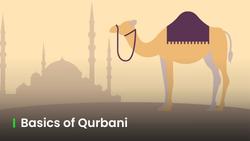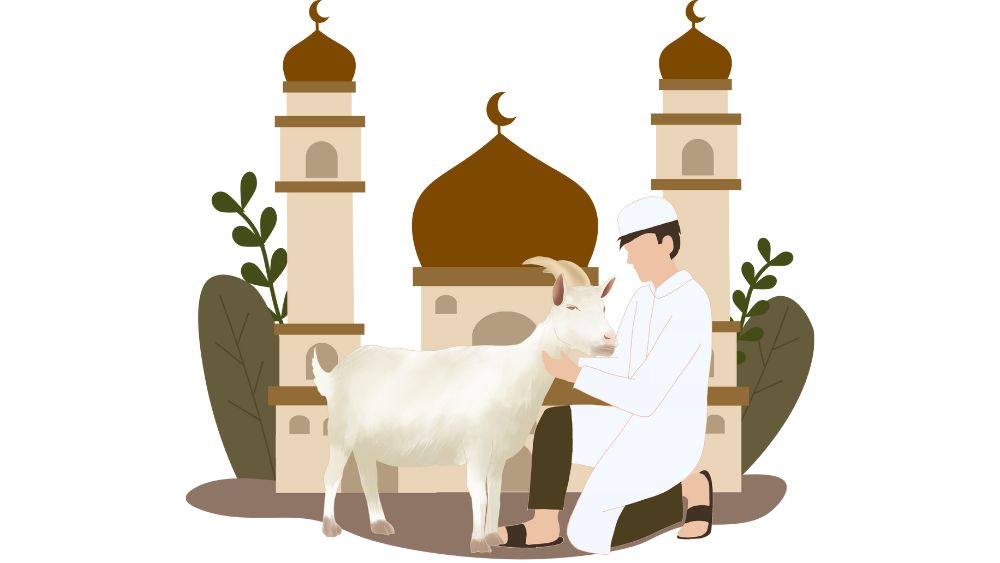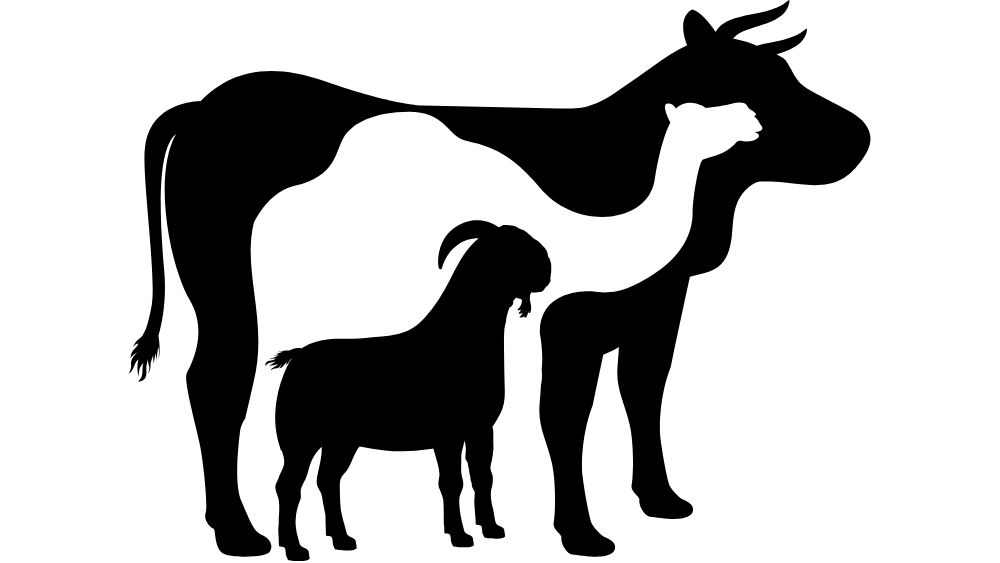What is Qurbani: Know the Qurbani Basics, Virtues & Rules

Qurbani is a significant Islamic rite observed during Eid al-Adha every year. It reminds us of the great sacrifice of Prophet Ibrahim (AS) and the spirit of submission to Allah. As we prepare for Qurbani this year, many of us ask a few vital questions: what is Qurbani, who has to give Qurbani, what kind of animals can be sacrificed, and so on.
Let’s take a moment to reflect on these questions and explore the basics of Qurbani, its purpose, rules, and rewards, so you can better understand this meaningful act of worship and fulfil it properly.
What is Qurbani in Islam?
The word “Qurbani” is an Arabic term derived from the root word “Qurban,” meaning “sacrifice” or “offering.” So, Qurbani in English frequently refers to ‘sacrifice’. Two other Arabic terms for Qurbani are Udhiya and Zabihah. This day is also called Eid al-Adha or Bakra Eid, one of the two annual Eid days for Muslims.
In Islam, Qurbani is the act of sacrificing (slaughtering) animals for the sake of Allah between the 10th and 12th of Dhul Hijjah. Muslims who are financially capable should offer Qurbani during this event.
When is Qurbani 2025?
Eid al-Adha or Qurbani is observed on the 10th of Dhul Hijjah each year in the Islamic calendar. In 2025, Qurbani Day will be celebrated on Friday, June 6. You must perform Qurbani after the communal Eid Salah.
However, the sacrifice can be done over three days: on the 10th, 11th, and 12th of Dhul Hijjah. So, in 2025, Qurbani may be performed on June 6, 7, or 8.
Note: Qurbani dates are subject to moon sighting and may vary based on your country or region.
Is Qurbani Fard?
Qurbani is Wajib (compulsory) according to the Hanafi school of thought. But the strong opinion of the other three Madhabs (Maliki, Shafi’i and Hanbali) is that Qurbani is Sunnah Mu’akkadah, i.e. highly recommended Sunnah.
Although there are differences in scholarly opinions, all agree that Qurbani is a confirmed Sunnah and should not be neglected by those able to perform it.
Note: Fard and Wajib are both compulsory. But Fard refers to obligatory actions supported with certainty, while Wajib is almost similar to Fard, but there is some uncertainty.

Who Is Eligible for Qurbani?
All adult Muslims of sound mind who possess wealth equal to or above the Nisab amount during the days of Qurbani should offer it.
In Islam, the Nisab amount is defined as:
- 87.48 grams of gold or
- 612.3 grams of silver or
- The equivalent wealth without debt
If you possess this wealth between the Fajr of the 10th Dhul Hijjah to the sunset of the 12th Dhul Hijjah, you should offer Zabihah.
We said before that performing Udhiya is highly recommended. So, whoever can do Qurbani should offer it for the sake of Allah. In fact, Prophet Muhammad ﷺ gave a sharp warning to those who don’t.
Abu Hurairah (RA) narrated a hadith from Allah’s Messenger ﷺ said: “He who has the ability but does not offer Qurbani should not even come near our Eidgah.” [Musnad Ahmad, Mustadrak al-Hakim]
Note: Qurbani isn’t obligatory on a Musafir (a person travelling more than 48 miles or 77 kilometers).
Why Do Muslims Give Qurbani? Purpose of Qurbani
The primary purpose of Qurbani/Udhiya is to show one’s devotion and Taqwa (Allah’s fear).
Allah Azza Wa Jall says in the Quran,
لَن يَنَالَ ٱللَّهَ لُحُومُهَا وَلَا دِمَآؤُهَا وَلَـٰكِن يَنَالُهُ ٱلتَّقْوَىٰ مِنكُمْ ۚ كَذَٰلِكَ سَخَّرَهَا لَكُمْ لِتُكَبِّرُوا۟ ٱللَّهَ عَلَىٰ مَا هَدَىٰكُمْ ۗ وَبَشِّرِ ٱلْمُحْسِنِينَ ٣٧
Meaning: “It is neither their flesh nor their blood that reaches Allah, but what does reach Him is the taqwā (the sense of obedience) on your part. Thus He has made them (the animals) subjugated to you, so that you proclaim Allah’s glory for the guidance He gave you. And give good news to those who are good in their deeds.” [Surah al Hajj, 22 : 37]
Muslims offer Qurbani by sacrificing animals in obedience to Allah’s (SWT) command and to follow the Sunnah of Prophet Muhammad ﷺ. This act commemorates the profound sacrifice of Prophet Ibrahim (AS), who was willing to give up his son Ismail (AS) for the sake of Allah.
Ummul Mu’minin Aisha (RA) narrated that the Messenger of Allah ﷺ said:
“There is nothing dearer to Allah during the days of Qurbani than the sacrificing of animals. The sacrificed animal shall come on the Day of Judgement with its horns, hair, and hooves. Allah accepts the sacrifice before the blood reaches the ground. Therefore, sacrifice with an open and happy heart.” [Jami at-Tirmidhi, Sunan Ibn Majah]
Learn details on how to do Qurbani in the right way.
Time of Sacrificing Udhiya Animal
Qurbani should be performed after the Eid prayer on the 10th of Dhul Hijjah. However, it can also be done on the 11th and 12th, including their nights.
If the animal is sacrificed before Eid Salah, it doesn’t count. You must sacrifice another eligible animal after Eid Salah.
Allah’s Messenger ﷺ said:
“Whoever slaughtered the sacrifice before offering the Eid prayer should slaughter another sacrifice in its place, and whoever has not slaughtered their sacrifice yet should slaughter now.” [Sahih Bukhari: 5562]
Qurbani Animals Descriptions

Which Animals Can Be Sacrificed?
The Halal animals that are permissible to sacrifice in the Qurbani event include camels, cows, buffaloes, goats, and sheep (ram/lamb). You must do Zabihah only the livestock animals so you can’t sacrifice wild animals like deer or wild cows.
Allah Subhanahu Wa Ta’Ala says in the Quran,
“I have prescribed sacrifices for every community; So that they may pronounce the name of Allah on all the four-legged animals that We have given them as sustenance.” ([Sura Al-Hajj, 22: 34)
Sacrificial Animal Age Requirements
| Sacrificial Animal | Minimum Age |
| Camel | Five years |
| Bull, Cow, Buffalo | Two years |
| Goat, Sheep, Ram | One year |
How Many Animals Should I Sacrifice?
If Qubrani is obliged upon you, you should give at least one share of Qurbani. Now, you may wonder, can I give more than one Qurbani? Yes, you can offer more than a single share of Qurbani as it will give you extra rewards, and people experiencing poverty will benefit more.
Qurbani Share Rules
| Qurbani Animals | Maximum Share |
| Camel/Cow/Buffalo | 7 |
| Goat/Sheep | 1 |
What Animals Should Be Chosen for Qurbani?
- The animal should look beautiful
- Perfect or free from defects
- More fleshy
- Active and strong
What Animals Should Be Avoided for Sacrifice?
- Blind
- Diseased
- Crippled
- Wounded animals
- Whose horns are broken from the root
- Animals with ears or tails cut off
Several Important Rules of Qurbani
What are the Rules of Qurbani for Husband and Wife?
If both husband and wife possess the Nisab amount of wealth, they should offer Zabihah for Qurbani Eid. Each of them should sacrifice at least one share of Qurbani. However, they can jointly sacrifice Qurbani animals in share with cow/camel/buffalo if they want.
Performing Qurbani on Behalf of Others
Those who are obligated to perform Qurbani should offer it themselves. Some scholars say it’s permissible, while others disagree. The opinions may vary depending upon which Madhab you follow. So, you can consult your local Islamic scholar/Sheikh for more specific answers.
Abu Talha (RA) narrated a hadith that the Prophet ﷺ sacrificed one ram. While doing Zabihah the other, he ﷺ said, “This is on behalf of every one of my Ummah who believe in me and testified (to my prophethood).” [Tabraani]

Can I Perform Qurbani and Aqiqah Together in Cattle?
According to the Hanafi school of thought, if you intend to offer both Qurbani and Aqiqah using one animal (cow, camel, or buffalo), this is okay.
What Should I Do If I’ve Missed Qurbani?
If you missed Qurbani despite being able to afford it, you should offer it next year. There are differences in opinions among scholars. So, consult your local Islamic scholars.
Read this blog to know the history of Qurbani.
FAQs
Q. How does Qurbani tie in with Hajj and Eid al-Adha?
A. Hajj takes place between the 8th and 13th of Dhul Hijjah, and Qurbani is performed between the 10th and 12th. Qurbani is also one of the final rites of Hajj, tying the two together.
Q. At what age is Qurbani mandatory?
A. According to Hanafi Madhab, Qurbani is mandatory for adult Muslims with sane minds who have the Nisab amount of wealth.
Q. Is Qurbani the same as Zakah?
A. No. Qurbani is only required on a person if he/she meets the Nisab criteria during the days of Eid al-Adha. On the other hand, Zakah is obligatory on those who possess the equivalent of Nisab for one year.
Q. What are the benefits of Qurbani on the human side?
A. Many people around us can’t eat meat throughout the year except for Eid days. So, if we offer Qurbani, less fortunate people will get a share of Bakra Eid meat from us and can eat happily. It is a festival for all.
Conclusion
Knowing and understanding the basics of Qurbani, such as when it’s due, who it’s obligatory for, and which animals are valid, is just as important as performing Qurbani itself. It helps us grasp the true essence of sacrifice and carry out the ritual sincerely.
If you’re preparing for Qurbani this year, take a moment to reflect on the wisdom behind this practice and make sure you understand your own Qurbani eligibility and responsibilities. May Allah accept your Qurbani and reward your intentions. Ameen.


